HIbernate的环境搭建和理解
1.首先进入官网下载
http://jingyan.baidu.com/article/e9fb46e185c0097521f76634.html 见百度教程下载
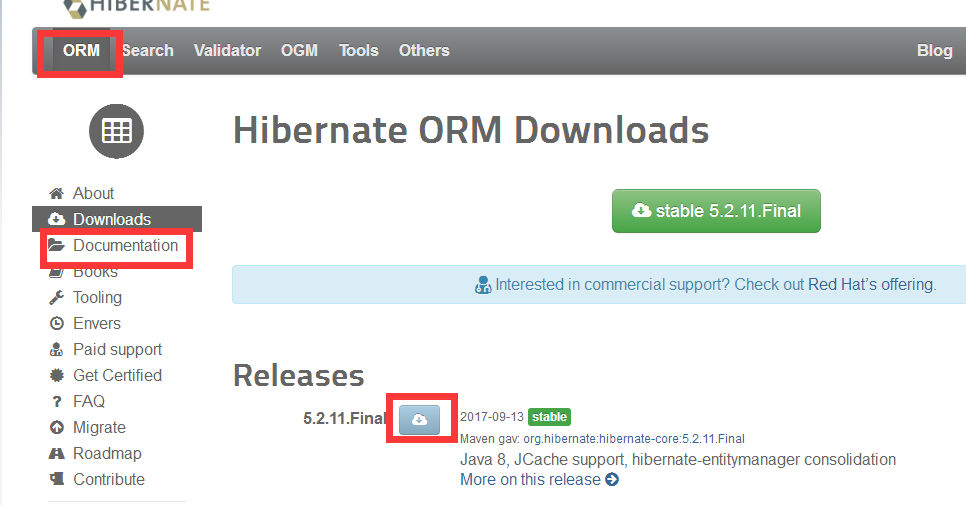
然后自动有下载页面跳出来自动下载
2.下载hibernate core包
3.lib文件夹下requred文件夹就是我们所用到的jar包
3.slf4j的下载(对这个小程序没什么影响)
最后不要忘了导入jdbc
4.打开下载的佩带的文档,可以开始我们的第一个小程序
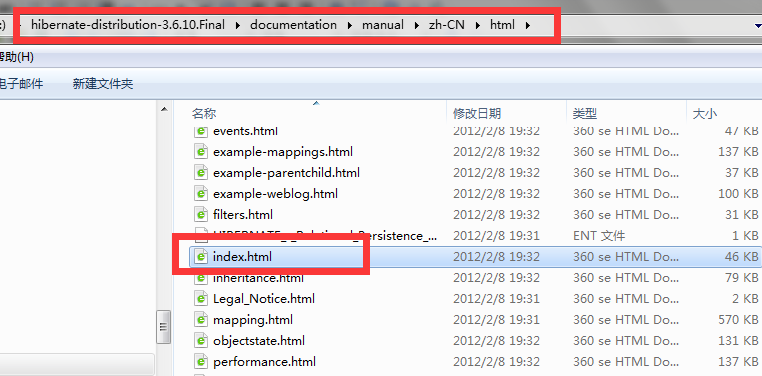
5.进入帮助手册,复制代码

6将代码复制到我们创建的文件里面
.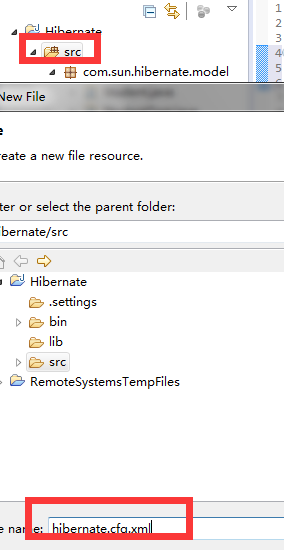
7.配置几个地方(告诉数据库要连接,然后连接哪个数据库)
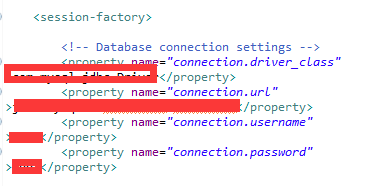

8.再在你的跟数据库中对象相对应的类的包下面建立.hbm.xml文件(建立映射文件,是hibernate提供的服务,告诉hibernate查哪张表)
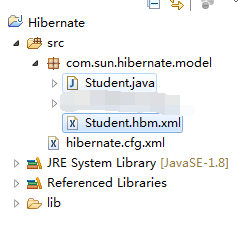
9.在文档中复制代码
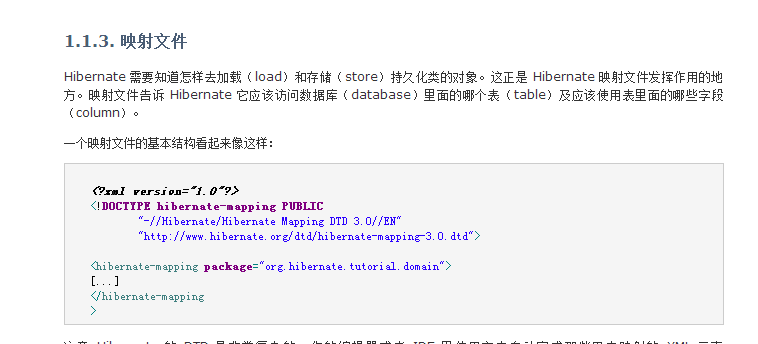
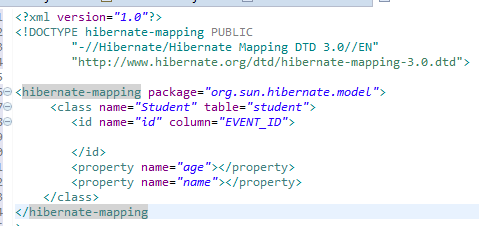
再改hibernate配置中的这个

10.配置已经完成,细节的部分都告诉hibernate了,现在就是用hibernate这个产品
11.我们要插入一条数据,首先想到的是怎么让我们类中有数据,即new 一个类出来,然后set方法,现在我们有了数据。然后怎么用hibernate的产品呢,我们开始做的工作就是填写配置文件,那么我们需要用的东西跟配置文件有关,有没有什么类将我们的配置文件起作用。即org.hibernate.cfg.Configuration。
12.
13.
package com.sun.hibernate.model; public class Student { private int id; private int age; private String name; public int getId() { return id; } public void setId(int id) { this.id = id; } public int getAge() { return age; } public void setAge(int age) { this.age = age; } public String getName() { return name; } public void setName(String name) { this.name = name; } }
package com.sun.hibernate.model; import org.hibernate.Session; import org.hibernate.SessionFactory; import org.hibernate.cfg.Configuration; public class StudentTest { public static void main(String[] args){ Student s=new Student(); s.setId(1); s.setAge(21); s.setName("sun"); Configuration cfg=new Configuration(); SessionFactory sf=cfg.configure().buildSessionFactory(); Session session=sf.openSession(); session.beginTransaction(); session.save(s); session.getTransaction().commit(); session.close(); sf.close(); } }
<?xml version="1.0"?> <!DOCTYPE hibernate-mapping PUBLIC "-//Hibernate/Hibernate Mapping DTD 3.0//EN" "http://www.hibernate.org/dtd/hibernate-mapping-3.0.dtd"> <hibernate-mapping package="com.sun.hibernate.model"> <class name="Student" table="student"> <id name="id" > </id> <property name="age"></property> <property name="name"></property> </class> </hibernate-mapping >
<?xml version='1.0' encoding='utf-8'?> <!DOCTYPE hibernate-configuration PUBLIC "-//Hibernate/Hibernate Configuration DTD 3.0//EN" "http://www.hibernate.org/dtd/hibernate-configuration-3.0.dtd"> <hibernate-configuration> <session-factory> <!-- Database connection settings --> <property name="connection.driver_class" >com.mysql.jdbc.Driver</property> <property name="connection.url" >jdbc:mysql://localhost/hibernate</property> <property name="connection.username" >root</property> <property name="connection.password" >root</property> <!-- JDBC connection pool (use the built-in) --> <!-- <property name="connection.pool_size" >1</property> --> <!-- SQL dialect --> <property name="dialect" >org.hibernate.dialect.MySQLDialect</property> <!-- Enable Hibernate's automatic session context management --> <!-- <property name="current_session_context_class" >thread</property> --> <!-- Disable the second-level cache --> <property name="cache.provider_class" >org.hibernate.cache.NoCacheProvider</property> <!-- Echo all executed SQL to stdout --> <property name="show_sql" >true</property> <!-- Drop and re-create the database schema on startup --> <!-- <property name="hbm2ddl.auto" >update</property> --> <mapping resource="com/sun/hibernate/model/Student.hbm.xml"/> </session-factory> </hibernate-configuration >
14.


